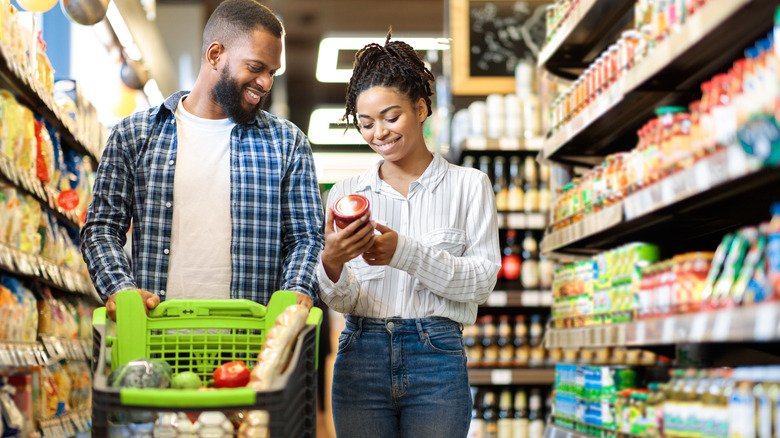New Data Shows Shoppers Are Sticking With Private Label Food Brands Over All Others
From shrinkflation to soaring food costs, it's no surprise consumers look for ways to save on their weekly grocery bill. Although pinching pennies might be a term that grandma used, overspending on a particular label, brand, or name does not seem to be 'en vogue.' Appreciating value trumps enticing advertising, and it seems to be a food trend filling people's baskets.
FoodDive reports that bargain hunting for grocery items is a priority for about 90% of consumers. Due to high costs and inflation, over 70% of shoppers have turned to private label brands to stretch the shopping dollar. Although these purchases might have lower costs, consumers are not sacrificing quality. The private label market has found a way to leverage premium products without the higher price tag. Using categories like organic, functional ingredients, and even non-GMO certifications can entice a purchase because these niches align with consumers' beliefs.
At the same time, the quality beyond the label delivers what buyers want. Gone are the days of the white packaged, bland knock-off hidden in the corner. For some, private label offerings are more sought after. Whether it is Trader Joe's, Costco's Kirkland, or Aldi, store-specific brands fill social media channels with the latest and greatest offerings.
How did private label brands change consumers' perception?
Decades ago, there may have been a stigma attached to buying the bag of cereal simply called "Honey Os" versus the box with the smiling bee. The store brand aisle seemed like an outcast of blandness in a sea of colorful, flavorful, more enticing options. For today's consumer, private-label brands have found a way to ditch that second-class category and rise to be a contender for the shopping dollar. In some cases, that store's offering is the same as an iconic cola, cookie, and snack.
According to the Private Label Manufacturers Association, 2022 store brand sales saw "nearly twice the growth of national brands." While these big brands once relied on catchy marketing campaigns, store brands have seen more excitement over products and brand loyalty increase due to consumer engagement, not just great value. Anyone who has purchased a weekly find or flown to the store for a snack is part of that shopping trend. Loyalty to a single company has been replaced with the desire to have the next quality find. Given that consumers can save ⅓ of their grocery budget by switching, the store brand has almost become a status symbol instead of a stigma. Although many consumers hope food costs will stabilize, shopping habits have evolved. National brands might have to fight hard to entice people to switch back to a favorite character from their childhood.

